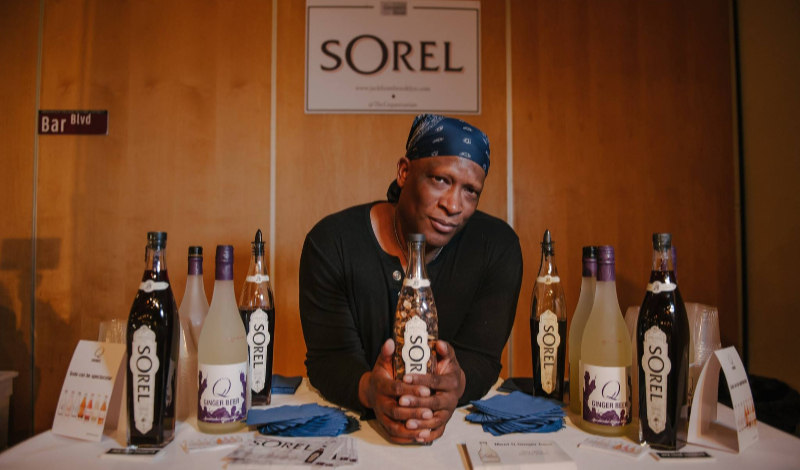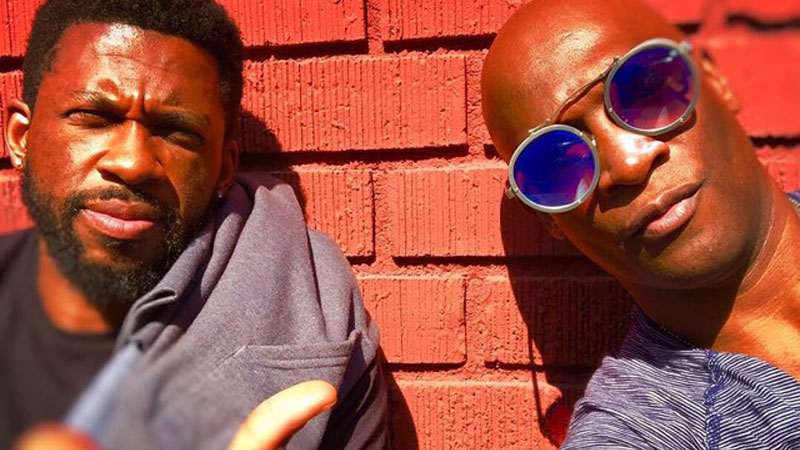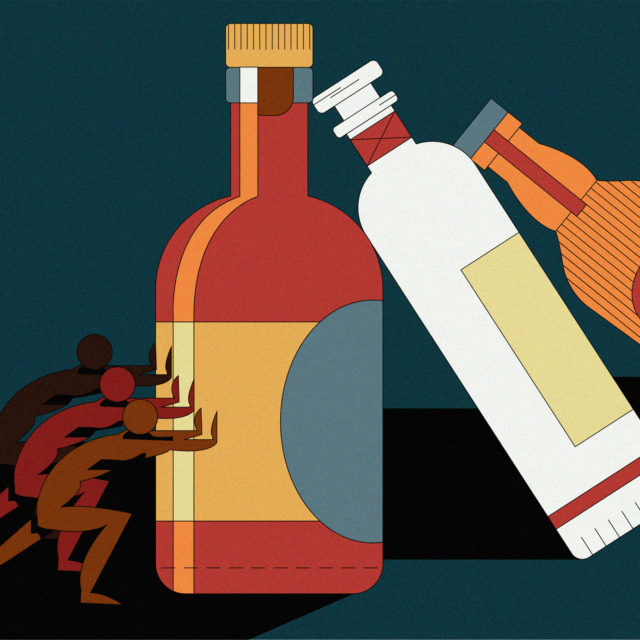In the spring of 2017, the owner of a prominent liquor festival thought it would be cute to appear on Facebook Live in blackface. Black people (and people in general of good conscience) were appalled at this casual reminder of a time in American history when lynching Black people was commonplace. A “diversity council” was hastily formed — a performative, superficial move with the laudable ambition of addressing long-overdue issues regarding racism in the hospitality industry. In truth, the group was only ever meant to act in an advisory capacity, and was given no power to institute any manner of policy change.
In the summer of 2017, I traveled to New Orleans to meet with some of the most august Black, Indigenous, and people of color (BIPOC) individuals in hospitality. Several dozen people gathered around a long table, all noteworthy individuals with well-earned gravitas. They introduced themselves: who they were, where they were from, and their current employment. I spoke last. I introduced myself as the creator of Sorel Liqueur, noting that when I launched my brand in 2012, I was the only Black person in America with a license to make liquor. My colleagues burst out into spontaneous applause. I told them not to clap, and the room went silent.
I felt my demeanor shift as I told my colleagues that being the only distillery owner in this room wasn’t an achievement, it was a travesty. This quorum represented brands and liquor conglomerates worth billions of dollars, yet their combined salaries would amount to less than the amount spent on parties thrown that weekend. The revelation that in a room full of industry leaders, I was the only person with an ownership position was less a badge of honor for me than a stain on our industry.
My voice seething with barely controlled rage, I told the group that in 1817, 99 percent of Black people in this country worked for a white person. Then I dropped a bomb, asking how many in the room worked for a white person at that very moment.
There are cruel realities you must accept if you are a Black person or a person of color who works in the liquor industry. The toughest pill we’re forced to swallow is the chasm between the weight of our collective contributions when juxtaposed to our remuneration. Cocktail historian David Wondrich has authoritatively linked both haute cocktail culture and dive bar culture to Black bartenders. It’s a well documented fact that the person who taught Jack Daniels how to make whiskey was a slave. It’s now inarguable that the United States owes much of its drink culture to Black people and people of color.
So why are there so few Black brand owners? It’s like having your cake, and being asked to feel grateful when a few cake crumbs spill from the table for you.

It’s important to acknowledge that the dearth of Black ownership is neither accidental or incidental. The lingering perception of BIPOC as less intelligent, lazy, and untrustworthy is reminiscent of a time in American history when the only way to justify the cruelty toward Black people was to paint them as not wholly human. You can treat anyone like an animal (or worse) once you’ve dehumanized them.
The inability to perceive BIPOC as anything more than laborers is a battle fought every time one of us stands before investors or seeks a business bank loan. The liquor industry serves as a microcosm of society at large, in that the relentless profitability of capitalism is proportionate to the restrictions on BIPOC’s ability to profit from their own labor and creativity.
“It’s like having your cake, and being asked to feel grateful when a few cake crumbs spill from the table for you.”
I’d also be remiss to attribute any success I’ve enjoyed to some extraordinary quality in myself. To attempt to identify a singular reason why I’ve been able to breach boundaries that have and continue to restrict so many is both to discount the remarkable skills, imagination, and volition of other BIPOC, while putting the onus of success on them instead of the institutional barriers designed to prevent entry to market.
You can’t clip an eagle’s wings and then blame it for being earthbound.
Being the only Black person in the U.S. to hold a Distilled Spirits Plant (DSP) permit in 2012 says less about me as an individual and more about a system centuries in the making that is designed to disenfranchise people of color, and holds them to a different standard. The process of acquiring a DSP is prohibitive by design. It begins with a federal, state, and local background check; a criminal record is an automatic disqualification. Next is a 10-year trace on everywhere you’ve lived, everywhere you’ve worked, and every dime you’ve made. One comma misplaced on any of the three simultaneous applications will set you back to zero.
You are required to provide the serial numbers of the equipment you intend to use, which means potentially spending hundreds of thousands of dollars before the first bottle of your product is available for sale. You must hold a lease on a physical space, where your distilling equipment will sit, unused, while you wait for your license to be approved. Between backlogs at the Alcohol and Tobacco Tax and Trade Bureau (TTB) and government shutdowns, this process can take anywhere from 18 months to two years. An indeterminate amount of time paying rent on an empty industrial space, housing equipment that is generating zero revenue, is a luxury few BIPOC can afford.
This kind of chicanery isn’t new. Creating financial barriers to prevent access to entry is the definition of systemic oppression. For example, sometime around 1896, a Black man became the first person of color to legally practice law in the U.S. The response of the academic community was to mandate that a bachelor’s degree was required before anyone could pass the bar.
The few people of color who could afford higher education took their new bachelor’s degrees to their bar exams. When they passed, a new mandate was set forth that only people who had acquired a law degree could apply to the bar exam. Deliberate economic prohibitions were placed as obstacles in the path of those seeking lawful, gainful employment. This is colloquially referred to as moving the goalposts. And the goalposts, like profit margins in liquor, are astronomical.
In the fall of 2010, not long after I’d left 25 years of corporate life behind me, I got a call from a former colleague. A vice president at a large media company asked to meet with me, with the intention of offering me a job with a six-figure salary. I took the meeting, knowing full well in my heart that I was never going back to an office. Not even a corner office on the 36th floor overlooking Central Park.

“I love my industry far more than it has ever loved me. It is this love that makes it incumbent on me to hold my industry accountable for its inadequacies, for its willful lack of inclusivity.”
We met at a burger joint on the Upper West Side of Manhattan. I’d brought a bottle of Sorel with me that I’d made in my kitchen so I could explain to him why I was going to decline his generous offer. I didn’t have my license at the time. I didn’t have a distillery. I didn’t have trademarks or a prospectus. I was armed only with my dreams. Our food came, and we toasted, while I explained my grandiose visions of launching a liquor brand. As we drank and talked, the gentleman at the table next to us stood up, came over to our table, and unassumingly asked, “So, are you looking for investors?”
Apparently he’d been listening to our conversation. Without hesitation, I stood up and introduced myself. I handed him a business card, then reached into my bag and pulled out a second bottle of Sorel (I knew I had to be prepared). I told him to take it home and enjoy it with his family and that I’d reach out to him later in the week to see if he was still interested. I put his business card into my wallet without giving it a second glance.
The next morning, as I was rifling through my wallet in an effort to figure out who it was I’d spoken to, I found myself staring at his card, trying to understand why the name Alexander Bernstein was so familiar. He was Leonard Bernstein’s son, who runs the Bernstein Foundation. He became my first investor.
In the fall of 2018, I traveled to Los Angeles to participate as a judge for the American Craft Spirits Association spirits competition. It was there that I met Paul Ryan Elliott, owner and founder of Loft & Bear Vodka. It was, and remains, the first and only time I’ve occupied the same physical space as another Black DSP holder. Since I got my license in 2012, a handful of others have done the same: Chris Montoya of Montoya Distillers, Robert Patton-Spruill of New England Sweetwater Farm & Distillery, and, most notably, Fawn Weaver of Uncle Nearest. That’s a 500 percent increase in Black distillery owners since I crossed the threshold, yet cartoonishly out of proportion when compared to the thousands of new craft distilleries that have opened in the past decade.
In the same way that I love a country that is historically hostile to Black people, I love my industry far more than it has ever loved me. It is this love that makes it incumbent on me to hold my industry accountable for its inadequacies, for its willful lack of inclusivity. This means leveraging my voice and any influence I have to create spaces for those who have been disenfranchised. It means helping companies examine their policies, and stressing lobbyists to change liquor laws.
Because in the end, the only value in being first is making sure you are not the last.
This story is a part of VP Pro, our free platform and newsletter for drinks industry professionals, covering wine, beer, liquor, and beyond. Sign up for VP Pro now!
